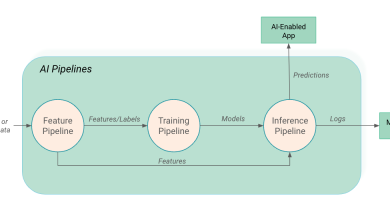
Don’t get left behind. The time to act is now
AI has already had a huge impact on the way businesses operate, but the next evolution is already taking place. Agentic AI represents a major leap forward, moving beyond basic automation and static chatbots to systems that can independently execute complex tasks, make decisions, and collaborate with users in dynamic ways.
Unlike traditional chatbots, which rely on scripted responses and rigid decision trees, AI agents operate with a high degree of independence. This capability is fuelling a surge in adoption, with a recent survey finding that 96% of enterprise IT leaders plan on increasing their use of AI agents in the next 12 months.
For businesses, it is critical to act when it comes to AI. This new advance in AI is going to transform how business workflows get from A to B, with the power of agents ushering in a new wave of productivity and innovation.
Start small, but with big impact
Successfully adopting AI agents starts with strategic prioritisation – identifying use cases that are low-complexity to implement but high impact. As organisations move from experimentation to large-scale implementation, certain applications emerge as clear leaders. Cloudera’s research identified the top use cases of agentic AI for organisations. These were performance optimisation bots (66%), security monitoring agents (63%), and development assistants (62%). Notably, 81% of respondents are also using AI agents to enhance the performance of their existing GenAI models.
Technology similar to agentic AI has been around for years, but the recent development of natural language processing capabilities of next-gen GenAI models is enabling agents to plan, collaborate, and improve in ways not possible before. Across industries, including but not limited to manufacturing, finance and telecoms, upgrades to short- and long-term memory structures are driving innovation across industries.
In fields where human outcomes are critical, like healthcare, AI agents are already delivering meaningful impact. They support medical professionals by offering diagnostic insights and recommending evidence-based treatments – driving efficiency and enhancing patient outcomes. Take a diagnostic agent trained on large volumes of imaging data. This agent will be able to look at X-ray images and flag issues that the human eye has missed, allowing for earlier intervention and better patient outcomes.
In financial services, the effect is similarly transformative. AI agents are becoming essential tools in areas like fraud detection, risk assessment, and investment advice. Fraud detection in particular benefits from the precision and speed of agentic AI, making it possible to identify suspicious activity before damage is done.
It’s important to remember that AI agents aren’t just invisible technologies operating in the background. They are tangible and impactful assistants with the power to fundamentally change the way we work.
Investing in the foundations for successful AI agents
While investment in AI is accelerating, many organisations are still facing significant hurdles when it comes to adopting agentic AI at scale. Research shows that the top concerns for IT leaders are data privacy, integration with legacy systems, and high implementation costs.
These are common areas of friction. But the solution lies in having a flexible data infrastructure.
A successful transition to agentic AI needs more than just technical readiness. It demands a strong data infrastructure foundation and strategic alignment. Beyond the technology itself, organisations need an ecosystem that brings together expertise, partnerships and best practices to maximise their AI investments.
As AI innovation accelerates, the challenge isn’t just keeping up, it’s building for the future as well. Organisations need solutions that can adapt and scale, while also unlocking the full potential of agentic AI to drive real impact.
Key to enabling this transformation is making AI agents both accessible and scalable. Empowering teams with intuitive, user-friendly tools – like no- or low-code interfaces – helps reduce barriers to adoption. Streamlined workflows and flexible infrastructure allow organisations to scale AI initiatives efficiently, respond to shifting demand and deploy agentic systems with greater speed and confidence.
2025: The year of agentic AI
Agentic AI is already spreading across data-driven organisations’ workflows. As investment accelerates across industries, the imperative is key: integrate AI agents now or risk falling behind. In fact, 83% of organisations believe it’s important to invest in AI agents to maintain a competitive edge, so this isn’t speculation.
To stay ahead of the competition, organisations need to match their AI ambitions with a unified, future-proof data platform. By bringing data and AI together in a single, scalable environment, organisations can move beyond ‘just trying it out’ to unlock real, enterprise-wide impact through agentic AI.





